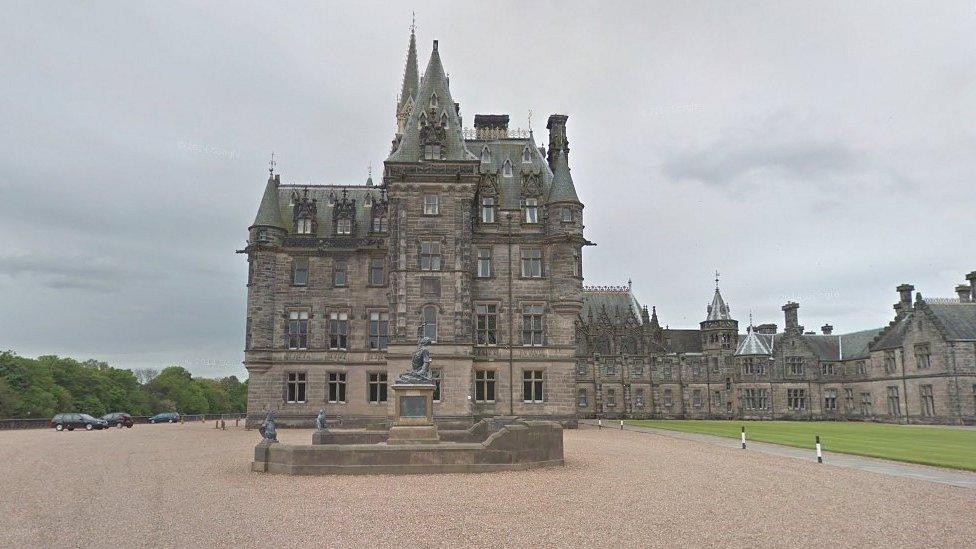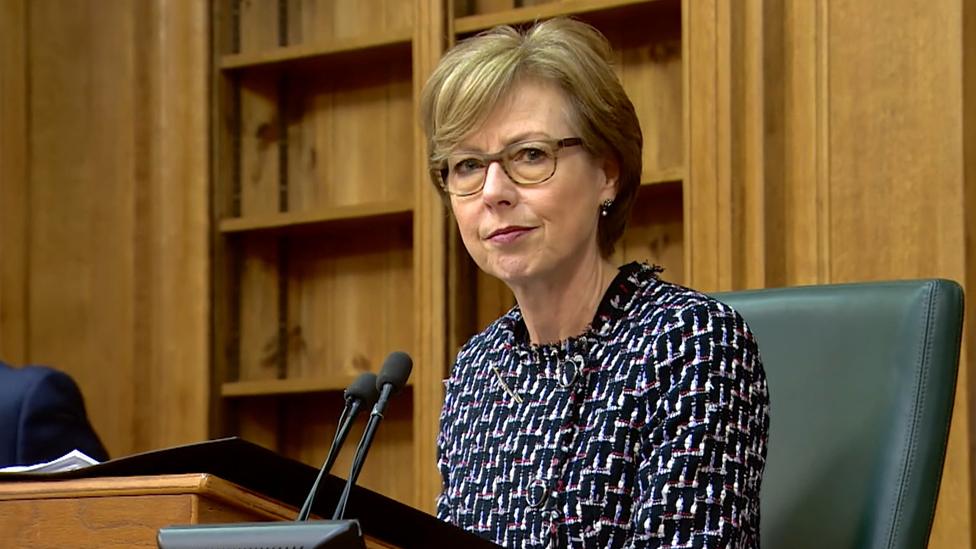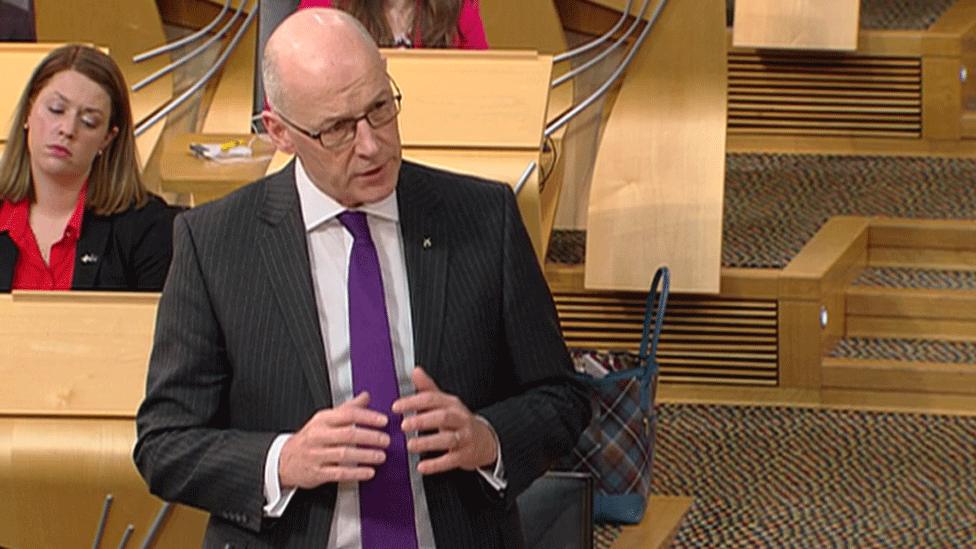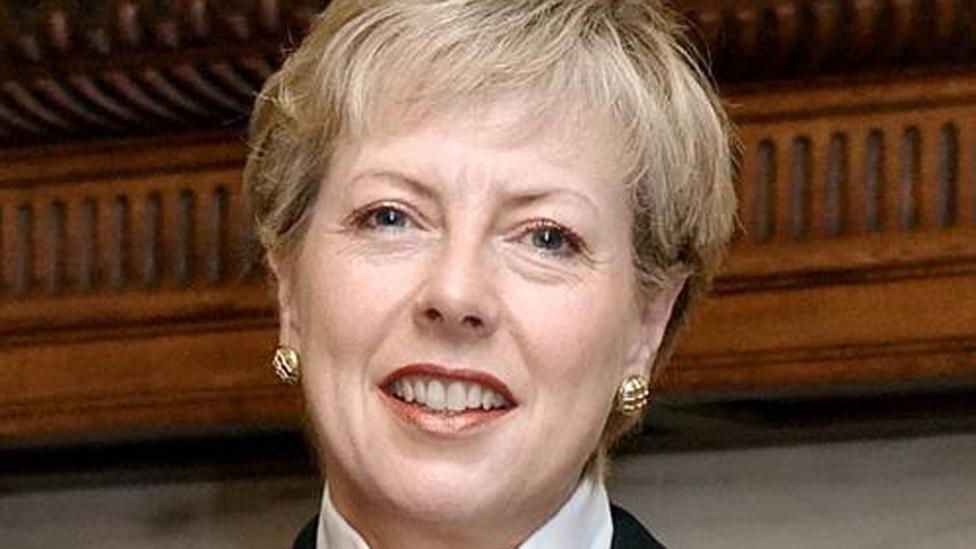Scottish child abuse inquiry investigates top private schools
- Published

Fettes College is one of the boarding schools being investigated by inquiry staff, the chairwoman confirmed
More than 60 institutions, including several top private schools, are being investigated by the Scottish child abuse inquiry, it has been confirmed.
The new chairwoman of the inquiry, Lady Smith, said they were among 100 locations where abuse is alleged to have taken place.
She said several boarding schools, including Fettes College and Gordonstoun, were being investigated.
The inquiry will look in detail at historical abuse of children in care.
Lady Smith replaces the original chairwoman who resigned in July 2016. Susan O'Brien stood down complaining of government interference.
Speaking at the start of the inquiry at the Court of Session building in Edinburgh, Lady Smith insisted the investigation would be fully independent.
She confirmed that several boarding schools were being investigated by inquiry staff.
Other institutions being investigated include those run by faith-based organisations and major care providers like Quarriers and Barnardo's.

Institutions under investigation
Boarding schools
Fettes College
Gordonstoun
The former Keil School
Loretto School
Merchiston Castle School
Morrison's Academy (when it was a boarding school)
Institutions run by religious orders
Benedictines
Sisters of Nazareth
Daughters of Charity of St Vincent de Paul
Christian Brothers
Sisters of our Lady of Charity of the Good Shepherd
De la Salle Brothers
Marist Brothers
Church of Scotland (Crossreach)
Other providers
Quarriers
Barnardo's
Aberlour Child Care Trust
Widower's Children's Home
Local authority establishments
Clerwood Children's Home, Edinburgh
Colonsay House, Perth
Nimmo Place Children's Homes, Perth
St Margaret's Children's Home, Fife
Linwood Hall Children's Home, Fife
Kerelaw Secure Unit, Glasgow
St Katherine's Secure Unit, Edinburgh
Larchgrove Remand Home, Glasgow
Source: Scottish Child Abuse Inquiry

Lady Smith also said child migrants were "expressly included in the inquiry", with staff working to contact people in countries like Canada, Australia, New Zealand who may have suffered abuse in Scotland.
The first public hearings will begin on 31 May 2017 and the inquiry is expected to last four years.
The judge told the court that she would act independently and without bias, and was fully independent of government, police and prosecutors.
The judge added she would not have agreed to chair the inquiry if she had concerns about its independent status.
'Systematic failures'
The inquiry states its purpose as being "to investigate the nature and extent of abuse of children whilst in care in Scotland", while considering "the extent to which institutions and bodies with legal responsibility for the care of children failed in their duty", in particular seeking any "systemic failures".
Its terms of reference, external say it covers a time period "within living memory of any person who suffered such abuse", up until the point the inquiry was announced in December 2014, and will consider if "changes in practice, policy or legislation are necessary" to protect children in care from abuse in future.

Lady Smith, pictured, was appointed to chair the inquiry after the resignation of Susan O'Brien QC
The inquiry has been plagued by problems since it was set up in October 2015. More than £3.5m has been spent on it during this period.
As well as the original chairwoman quitting last July, a second panel member, Prof Michael Lamb, also resigned, claiming the inquiry was "doomed".
Lady Smith was appointed to replace Ms O'Brien, but Mr Swinney said he was confident a replacement for Prof Lamb was not needed - although he added that experts could be called in to assist Lady Smith and remaining panel member Glenn Houston.
There were also complaints about the remit of the inquiry, with survivors' groups claiming some abusers could be could be "let off the hook" if children's' organisations, clubs and local parish churches were not specifically included in the probe.
However, Mr Swinney told MSPs that it was clear there was "not unanimity on this issue", concluding that the probe should focus only on in-care settings so that it remained "deliverable within a reasonable timescale".
He said "terrible crimes" had been committed in other settings, such as day schools and youth groups, but said criminal behaviour should be referred to the police and would be "energetically pursued through the criminal courts" where evidence exists.
A bill has been introduced, external at Holyrood removing any time bar on people seeking damages over childhood abuse.
- Published17 November 2016

- Published17 October 2016

- Published27 July 2016
